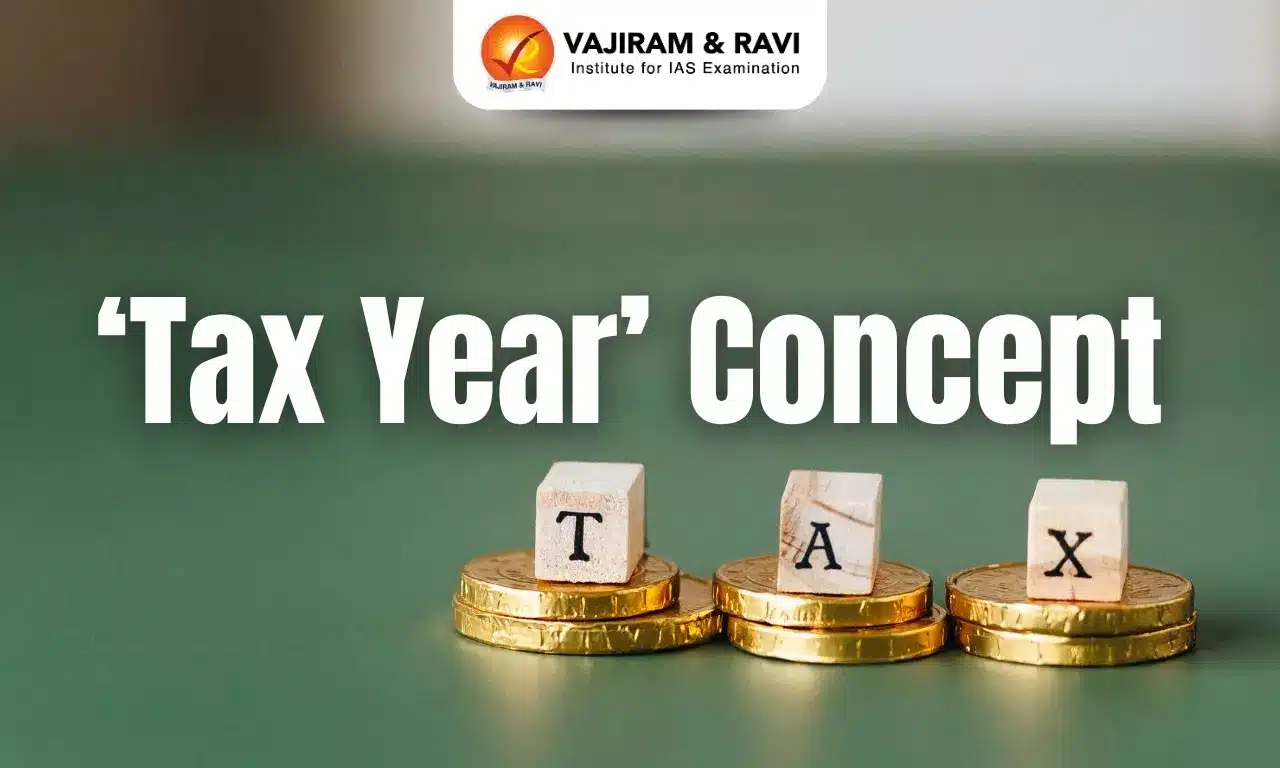Tax Year Concept Latest News
The Income Tax Bill 2025, tabled in Parliament recently, defined a new concept of ‘tax year.
About Tax Year Concept
- Currently, income tax laws use the assessment year to refer to the year following the financial year in which income is earned.
- This often leads to confusion when filing taxes or depositing self-assessment and advance tax.
- The new bill proposes a unified ‘Tax Year’, which will simply refer to the same financial year (April 1–March 31),in which income is earned and tax is filed.
- Under the new system, the ‘Tax Year’ will run from April 1 to March 31, replacing the assessment year.
- Benefits of Tax Year:
- The primary benefit of Tax Year is that this will remove the confusion between Previous Year and Assessment Year.
- This will also help India fall in line with international standards since many countries follow the concept of a singular tax year.
- Advance tax computation will also be made easier since taxpayers will be able to refer to the Tax Year alone instead of navigating through Previous Year and Assessment Year.
- An example of how Tax Year will work:
- According to the Income Tax Act 1961, if a person earns in the year April 1, 2024–March 31, 2025, this time period will be known as the Previous Year and 2025-26 when tax will be assessed for said income; that time period is known as the Assessment Year.
- In the new draft bill, if a person earns in the year April 1, 2025–March 31, 2026, it will simply be known as Tax Year 2025-26.
Tax Year Concept FAQs
Q1. What is TDS in income tax?
Ans. TDS (Tax Deducted at Source) is a system where tax is deducted at the time of payment for income like salary, rent, or professional fees and deposited with the government to ensure advance tax collection.
Q2. Is GST direct or indirect tax?
Ans. GST, known as the Goods and Services Tax, is an indirect tax.
Q3. What is angel tax?
Ans. Angel Tax is a tax levied on the excess capital raised by a startup when it receives investments from angel investors or other sources at a valuation higher than its fair market value.
Source: NDTVP
Last updated on June, 2025
→ UPSC Notification 2025 was released on 22nd January 2025.
→ UPSC Prelims Result 2025 is out now for the CSE held on 25 May 2025.
→ UPSC Prelims Question Paper 2025 and Unofficial Prelims Answer Key 2025 are available now.
→ UPSC Calendar 2026 is released on 15th May, 2025.
→ The UPSC Vacancy 2025 were released 1129, out of which 979 were for UPSC CSE and remaining 150 are for UPSC IFoS.
→ UPSC Mains 2025 will be conducted on 22nd August 2025.
→ UPSC Prelims 2026 will be conducted on 24th May, 2026 & UPSC Mains 2026 will be conducted on 21st August 2026.
→ The UPSC Selection Process is of 3 stages-Prelims, Mains and Interview.
→ UPSC Result 2024 is released with latest UPSC Marksheet 2024. Check Now!
→ UPSC Toppers List 2024 is released now. Shakti Dubey is UPSC AIR 1 2024 Topper.
→ Also check Best IAS Coaching in Delhi






















